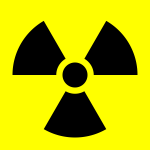The European Union Foreign Affairs Council on Thursday increased the number of Iranian individuals and entities facing restrictive measures from the EU in response to ongoing concerns about the Iranian nuclear program. According to a press release from the Council, 143 entities and 37 persons were added to the EU asset freeze list. Their economic resources in the EU are also subject to a freeze and they are banned from entering the EU.
The press release said those affected are “directly involved” in Iranian nuclear activities, linked directly to the Islamic Republic of Iran Shipping Line or members of the Islamic Revolutionary Guards Corps and entities controlled by them.
Said the press statement, “Given the EU’s increasing concerns over the Iranian nuclear program and the lack of progress in diplomatic efforts, the Council has today strengthened the EU restrictive measures against that country.”
The moves come in addition to sanctions already passed by the EU. A separate Foreign Affairs Council press release noted they hold “serious and deepening concerns,” particularly regarding the “findings on Iranian activities relating to the development of military nuclear technology” as reflected in the latest report from the International Atomic Energy Agency (IAEA).
The Council also agreed the EU should further expand sanctions on Iran. Plans are in motion to examine where existing sanctions can be broadened in a variety of fields. Specifically, these include examining “measures aimed at severely affecting the Iranian financial system, in the transport sector, in the energy sector, measures against the Iranian Revolutionary Guard Corps, as well as in other areas.”
The moves come after the US and others increased their own sanctions on Iran.
Despite the intensification of sanctions, the Council reaffirmed the “longstanding commitment of the European Union to work for a diplomatic solution of the Iranian nuclear issue.” In so doing they called upon Iran to respond “positively” to the latest EU offer of negotiations “by demonstrating its readiness to seriously address existing concerns on the nuclear issue.”
(By Staff, www.themideastupdate.com, December 1, 2011)

